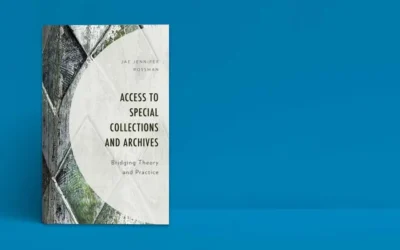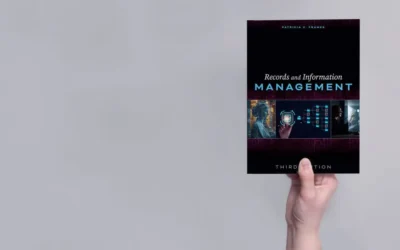Blogging as a Special Librarian

Stephen Abram
Are you a blogging newbie? I doubt that! Been blogging for a while and now you’re feeling stuck? Has the dreaded writer’s block virus hit you? Feeling uninspired, all out of ideas, or not feeling very creative? Simply don’t know how to blog in your sector? Fear not; blogs still have some life in them!
In this post, I thought I’d offer some personal and practical advice on blogging for special librarians and information professionals. We should all be communicating with our peers, users, colleagues, patrons, markets—and just plain folks—regularly. Blogs can be part of your communication mosaic and add clear value. When they’re added to email, websites, newsletters, etc., and combined with RSS and permission-based marketing, you’ve got a powerful strategy.
Now you just need content! Ah, that’s often the rub, eh?!
I blog. In addition to Stephen’s Lighthouse, I’ve also blogged for conferences including SLA and Information Today, as well as here at the Lucidea Think Clearly blog. I microblog in 140 (now 280!) characters or fewer at Twitter and have enjoyed using hashtags at conferences and events. I also think that RSS features and the ability to cross-post to my social media sites make it way easier to post everywhere in social media land. I guess I’m a bit of an addict.
I know that corporate or institutional blogging has a different patina to it but the guidelines are pretty much the same. You’ll know if your blog needs to be limited to internal access only. You’ll know your organizational policies. I am aware that some organizations ban blogging and social media posting, but that’s loosening up as organizations see the value added in terms of improved communication, timeliness, productivity improvements and cost savings; corporate leaders are recognizing that older school blanket emails or print newsletters don’t necessarily align with our primary colleagues’ ways of using their time, nor with their own personal learning network activities.
12 pieces of advice:
- Don’t take yourself too seriously. You’re writing for the web and not some scholarly, juried publication. Expectations will be different.
- If you worry how every last person in the world will react to your post, you’re never going to get it published. Have a specific audience in mind and write for them.
- Consider having a blogging partner. Some people find just having someone say your draft post is OK is enough to break inertia. Alternatively, have a group blog with your colleagues or staff.
- Try to think about what interests you. It’s very likely there are others interested in the same thing.
- Have an opinion or point of view. I don’t necessarily mean politically, but be known for focusing on quality, and/or good decision support, and/or something of value to your organization or audience.
- Shorter is better. 1-3 paragraphs can be enough. You’re not trying to write a textbook or the definitive article. The occasional long post is OK, but don’t go overboard. Short and sweet wins the day. (A lesson I’m still learning!)
- Use formatting. Publishers invented different fonts and sizes, bold, underline and italics for a reason. Use them but don’t go wild. Have some taste!
- Layout is good. It enhances readability. Color is good too. Graphics that enhance your message can be fun and effective.
- Don’t be too serious or needlessly stuffy in an attempt to look ‘professional’. Regularly using appropriate humor or pointing to something fun on YouTube or the web can provide some personality for your blog.
- Leave comments open but moderate them. You don’t want blog spam getting out there, so use a filter. Comments can be great sources of ideas too. I get inspired by your comments on these posts.
- Schedule time to write. Don’t go crazy. Maybe all you need is a 15 minute a week or a day appointment with your blog—put it in your calendar.
- Ask your users, “What should I be blogging?” It might not need to be that direct. Just find out their information issues and provide an Rx. Every information problem a user shares with you suggests a blog post topic.
- Volunteer to blog via AALL, SLA, whatever chapter, division or unit. Polish up your skills safely in that venue, and then bring them inside.
8 ideas for unblocking your creativity:
- I have found that viewing interesting or unusual pictures stimulates my creativity. You can even use some of these pictures in your blog post. Try using some of the Creative Commons image search engines or get an account with a photo licensor like iStockPhoto.com. (You can always search Google Images and iStockPhoto just for inspiration).
- Similarly, search a proposed blog topic on the web (don’t forget YouTube and non-text engines) and see what’s out there. Agree or disagree with what you see and you’re on your way.
- When you read blogs, you find ideas. So, read blogs in Library Land as well as in the information domain of your sector. If I see the germ of an idea in another blog posting, or something that I’d like to point to with credit, I email it to myself and keep it in an idea file in my inbox. Most RSS aggregators like Feedly and Medium support tagging, email and direct posts to some blog software.
- What did you do today, this week? Find inspiration in our work—interesting reference questions and research projects, successes with clients, short stories of difficult searches, new sources, books, websites, blogs, etc., are all good blog post fodder and will echo with the clients you serve because they’re in context.
- What mistakes are my clients risking? What could I say today to everyone in my organization or market that would make their research, their work or their lives better?
- When was the last time a client said, ‘I am so glad you told me that tip!’? Write about that. Blogs are also a great place for testimonials.
- What presentations do you have in your files? What PPT slide suggests a blog posting? Can you use the graphic too? You can use Slideshare.net for posting PDFs and PPTs easily.
- What is in your organization’s record that suggests a supportive post? Read the annual report, the CEO’s speeches, strategic planning priorities, press releases, etc.
I’ll end this post with some ideas for blog post topics to get you going. And taking my own advice, this list was inspired by “20 blog Topics to Get You Unstuck” By Chris Brogan.
Answer these questions:
- What challenges are your users encountering?
- What are your colleagues reading? Can you summarize the main points and pass on the tips?
- Have you considered using your blog as a current awareness tool?
- What bugs your users about the web, online databases, print sources, etc.? How can you help?
- What products in your library are underused? Why? Is it just awareness or they need you to connect-the-dots to their workflow?
- What has the potential of helping (hurting) me or my community in the coming months? Are there possible ways to leverage that, or get out of its way?
- What tools are underused by your users but have real value? What do they need to know to recognize that power? Can you tell a story about a user’s success?
- What’s happening in the competitor or environmental scan? What are the highlights?
- What are the latest tips for using Google (or anything else that’s free) effectively? Of course, we can promote other quality resources at the same time.
- What kinds of thoughts will inspire my audience to contact me?
- Tell a story—or have a user tell a story—about research success. Storytelling is powerful in any environment. Try video.
- How about sending out a survey? Use the comments or SurveyMonkey.
- Are your colleagues procrastinators when it comes to research and preparation? Offer tips.
- Popular posting topics include ones that offer:
- Top 10 lists
- The ABC’s of XYZ
- How to
- Tips and Tricks
- A Recipe for Success
- Secrets of
- Roadmaps for sales calls, proposals, patent preps, etc.
The more you write, the easier it will get. Read as much as you write and be prepared to note any ideas. Information professionals are curious and inquisitive by nature. Our needs for research and searching skills generalize to the entire organization very well. Share. You’re great at that too.
Invest part of yourself and your personality in your blog. If you’re real and authentic, people will be attracted to your advice.
Blog luck!
-Stephen

Stephen Abram
Stan writes regularly for Lucidea’s Think Clearly blog. Subscribe to ensure you never miss a post with engaging information for KM practitioners and special librarians! Learn about Lucidea’s Presto, SydneyDigital, and GeniePlus software with unrivaled KM capabilities that enable successful knowledge curation and sharing.
Similar Posts
Interview with Author and Librarian Dr. Jae Rossman on Special Collections and Archives
Dr. Jae Rossman wrote Access to Special Collections and Archives, available now from Rowman and Littlefield. The book is an excellent resource for special librarians who work with special collections and archival materials.
Interview with the Author: Dr. Patricia Franks on Records and Information Management
Dr. Patricia Franks is the author of Records and Information Management, now with an upcoming third edition to be published by ALA Neal-Shuman in the spring of 2025. My interview with her follows.
Are There Drawbacks to Using GenAI for Research?
Researchers must take responsibility for understanding how GenAI works and closely review literature search results before relying on them. Let’s take a look at three major drawbacks for researchers and special librarians to consider when leveraging or recommending GenAI platforms.
Researching with GenAI: Tools & Tips for Special Librarians
When GenAI first became widely available, there was a great deal of discussion about how it would “hallucinate”—that is, make up content and sound very sure of itself when doing so.



